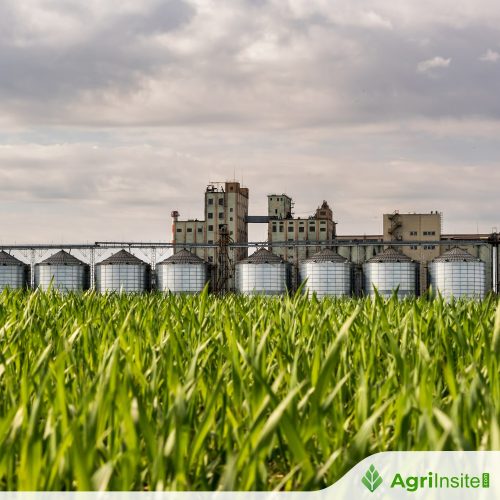USDA cancels Partnership for Climate-Smart Commodities program

U.S. Agriculture Secretary Brooke Rollins has canceled the USDA’s $3.1B Partnerships for Climate-Smart Commodities program, citing high administrative costs and limited farmer benefits. Select projects may continue under a new “Advancing Markets for Producers” initiative requiring 65% of funds go directly to farmers. The USDA aims to refocus efforts on simpler, farmer-first policies aligned with current administration priorities.
U.S. Agriculture Secretary Brooke Rollins on April 14 announced the cancellation of USDA’s Partnerships for Climate-Smart Commodities program. Select projects that meet certain requirements may continue under a new Advancing Markets for Producers initiative.
The USDA announced the launch of PCSC in February 2022, indicating plans to invest $1 billion partnerships to support America’s climate-smart farmers, ranchers and forest owners. The program was designed to finance pilot projects that would create market opportunities for U.S. agricultural and forestry products that use climate-smart practices and include innovative, cost-effective ways to measure and verify greenhouse gas (GHG) benefits.
Funding for the program was provided through the USDA’s Commodity Credit Corp. to support pilot projects that provide incentives to producers and landowners to implement climate-smart production practices, activities and systems on working lands; measure/quantify, monitor and verify the carbon and GHG benefits associated with those practices; and develop markets and promote the resulting climate-smart commodities.
The program received strong interest from the agricultural community, with more than 450 proposals for large-scale projects submitted within the three months of the program’s announcement.
The USDA in September 2022 announced it would invest up to $2.8 billion in 70 initially selected PCSC projects. In celebration of the one-year anniversary of the program’s launch, the agency in September 2023 indicated it was investing more than $3.1 billion in 141 PCSC projects.
Several biofuel, biogas and biochar-related projects were among those selected to receive funding. Among the awardees were Gevo’s Climate-Smart Farm-to-Flight Program, which was awarded up to $30 million and aimed to track and quantify the carbon-intensity (CI) impact of climate-smart practices while creating market incentives for low CI corn to help accelerate production of sustainable aviation fuel (SAF) and low-CI ethanol.
Global Clean Energy Holdings Inc. was also awarded up to $30 million for a climate-smart camelina pilot project, which aimed to measure and validate the advantages of Camelina sativa (camelina) as an ultra-low carbon nonfood renewable fuel feedstock.
In addition, Roeslein Renewables was awarded up to $80 million to support a five-year PCSC project in Iowa and Missouri. Under the project, Roeslein was collaborating with 14 public and private entities to create markets for corn, soybeans, and livestock producers through renewable natural gas (RNG) production.
The USDA has deleted its PCSC webpage, which included a full list of awardees and program summaries. Archived versions of the PCSC webpage, however, can still be found online.
In its April 14 announcement, USDA cited “sky-high administration fees which in many instances provided less than half of the federal funding directly to famers,” as a reason for cancelling the PCSC program.
“Select projects may continue if it is demonstrated that a significant amount of the federal funds awarded will go to farmers,” the USDA said in its announcement. “We continue to support farmers and encourage partners to ensure their projects are farmer focused or re-apply to continue work that is aligned with the priorities of this Administration.”
According to the USDA, the PCSC program is being reformed and overhauled into the Advancing Markets for Producers initiative. The agency said it has identified changes to align with current Trump Administration priorities and “will review existing grant agreements based on three Farmer First policy priorities.” This includes a requirement that at least 65% of federal funds go to producers; a requirement that grant recipients must have enrolled at least one producer as of Dec. 31, 2024; and a requirement that grant recipients must have made a payment to at least one producer as of Dec. 31, 2024.
“The Partnerships for Climate-Smart Commodities initiative was largely built to advance the green new scam at the benefit of NGOs, not American farmers,” Rollins said. “The concerns of farmers took a backseat during the Biden Administration. During my short time as Secretary, I have heard directly from our farmers that many of the USDA partnerships are overburdened by red tape, have ambiguous goals, and require complex reporting that push farmers onto the sidelines. We are correcting these mistakes and redirecting our efforts to set our farmers up for an unprecedented era of prosperity.”
In its statement, USDA said it will contact current partners individually to provide information about their future participation. The agency also said it will honor all eligible expenses incurred prior to April 13, 2025.
To Read more about Ethanol Industry & Bio Energy News, continue reading Agriinsite.com
Source : Ethanol Producer Magazine















